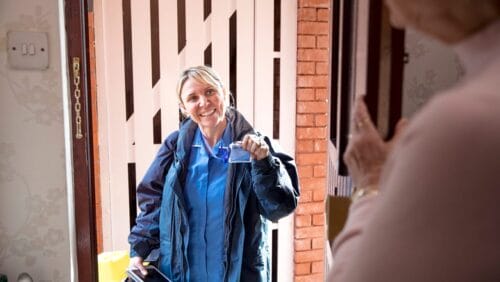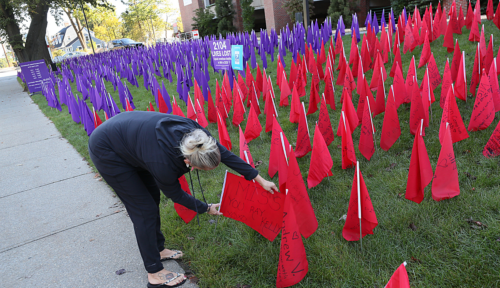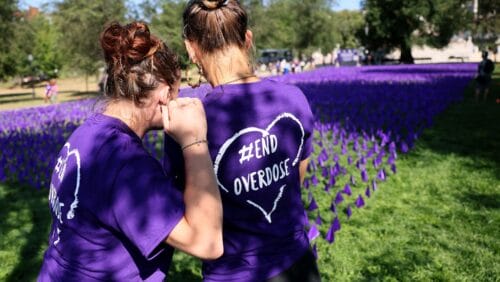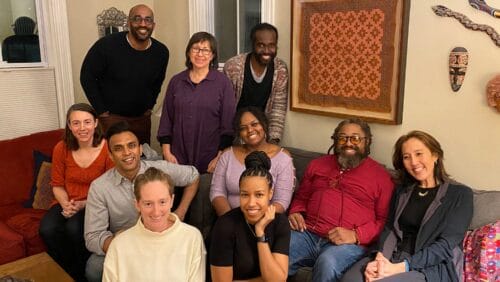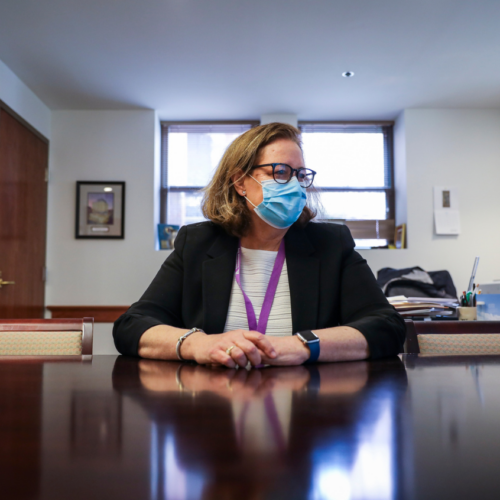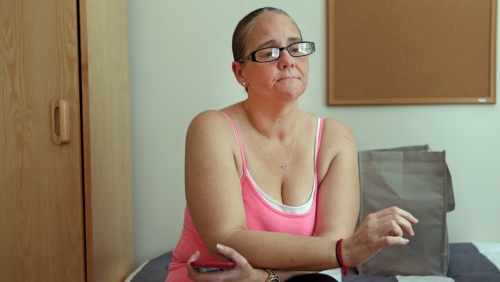Addressing Social Determinants of Health Is Critical In Curbing Opioid Overdose Deaths, Study Finds
Research from Boston Medical Center shows a 21% reduction in overdose deaths in communities that address social needs as a part of post-overdose outreach programs.
Read MoreBMC Is Developing New Anti-Racism Addiction Treatment, Research, and Policy
After a research project engaging people with lived experience of SUD, Boston Medical Center has findings on making addiction treatment better for Black patients.
Read MoreWhat Is Harm Reduction?
An expert and advocate for harm reduction talks about how she meets patients where they are with treatment options, resources, and hope for tomorrow.
Read MoreFinding Joy in Food: How Cooking With Others Can Bolster Recovery
BMC’s Cooking for Recovery Program addresses nutrition, body image issues, and food access for people with addiction while providing space to make a home-cooked meal.
Read MoreHelping Healthcare Providers Process Grief After Overdose Deaths
Losing patients to overdose can present special grief challenges for healthcare providers. Peer and employer support can help.
Read MoreNew Research Finds Strong Association Between Psychostimulant Prescriptions and Fatal Overdoses
These findings raise a need for reforming harm reduction education to include information about stimulant use.
Read MoreHow Can We Make Addiction Care More Appealing and Effective for Black Patients?
The team at BMC’s Grayken Center for Addiction is undertaking a major project to answer this question by tapping into the wisdom of Black community members
Read MoreOffering Addiction Medication to Incarcerated People Reduces Overdose Deaths
People with substance use disorder make up a disproportionate amount of incarcerated people. Effectively treating this population is key to curbing overdose deaths.
Read MoreBusting 4 Myths About Supporting a Family Member in Addiction Recovery
Concepts like “tough love” and “codependency” are among many myths around family support that can hinder a loved one’s recovery from addiction.
Read MoreCommunities That Implement Post-Overdose Outreach Programs Have Fewer Opioid Overdose Deaths
Non-fatal opioid overdose is a leading risk for overdose death. Post-overdose outreach programs offer an opportunity to connect to help.
Read MoreAddiction Treatment Focusing on Women Is Key to Parity in Care
Women with substance use disorder have a unique set of challenges for which existing addiction services have failed to find solutions.
Read MoreCommunity Is Critical in Stemming the Opioid Overdose Crisis
“It’s frustrating…that we have the tools to be able to offer people what they need but…we have systems that are restricting the…care that people deserve.”
Read More